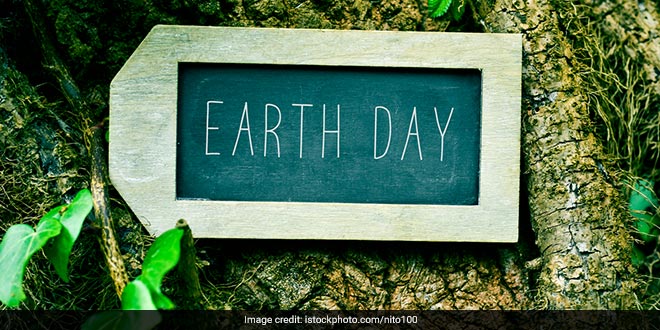Highlights
- Human activities is the main reason behind climate change: UNEP
- Emissions need to be cut by 7.6% every year till 2030: UNEP
- Countries are not on track to fulfil the promises in Paris Agreement: UNEP
New Delhi: April 22 every year is observed as Earth Day, with an aim to educate people on the importance of protecting the natural habitat, counter climate change and stop destruction of biodiversity, all of which impact the livelihoods of people. The day is marked with a unique theme every year and the theme for 2021 is – Restore Our Earth. With the message ‘restore our earth’ everyone is being urged to come together, educate each other, to prevent the forthcoming disasters of climate change and environmental destruction.
Earth Day is celebrated in over 190 countries, with an estimated 1 billion people across the world participating each year.
Here are 10 facts to know about the climate emergency, as per United Nations Environment Programme (UNEP).
- Human activities is the main reason behind climate change. These include the release of polluting gases from burning of fossil fuel – coal, oil and gas.
- The global average temperature in 2019 was 1.1 degrees Celsius above the pre-industrial period. 2019 concluded a decade of exceptional global heat, retreating ice and record sea levels driven by greenhouse gases produced by human activities.
- Average temperatures for the five-year (2015-2019) and ten-year (2010-2019) periods are the highest on record; with 2019 being the second hottest year on record.
- If the temperature warms up beyond 1.5°C, over 70 per cent of coral reefs will die, but at 2°C, all reefs over 99 per cent will be lost. The frequency and intensity of droughts, storms and extreme weather events are increasingly likely above 1.5°C.
- Insects, vital for pollination of crops and plants, are likely to lose half their habitat if global average temperatures soar at 1.5°C but this becomes almost twice as likely at 2°C.
- The Arctic Ocean being completely bare of sea ice in summer would be a once per century likelihood at 1.5°C but this leaps to a once a decade likelihood at 2°C.
- To prevent warming beyond 1.5°C, we need to reduce emissions by 7.6 per cent, every year till 2030.
- In 2015, nations agreed to a legally binding commitment in Paris to limit global temperature rise to no more than 2°C above pre-industrial levels, but also offered national pledges to cut or curb their greenhouse gas emissions by 2030. This is known as the Paris Agreement.
- Countries are not on track to fulfil the promises they have made. The initial pledges of the Paris Agreement are insufficient to meet the target, and governments are expected to review and increase these pledges as a key objective. The updated Paris Agreement commitments will be reviewed at the climate change conference in November 2021. This conference will be the most important intergovernmental meeting on the climate crisis since the Paris agreement was passed in 2015.
- If countries cannot agree on sufficient pledges, in another 5 years, the emissions reduction necessary will leap to a near-impossible 15.5 per cent every year. The unlikelihood of achieving this far steeper rate of de-carbonization means the world faces a global temperature increase that will rise above 1.5°C. Every fraction of additional warming above 1.5°C will worsen the impact of climate change, threaten lives, food sources, livelihoods and economies worldwide.
NDTV – Dettol Banega Swasth India campaign is an extension of the five-year-old Banega Swachh India initiative helmed by Campaign Ambassador Amitabh Bachchan. It aims to spread awareness about critical health issues facing the country. In wake of the current COVID-19 pandemic, the need for WASH (Water, Sanitation and Hygiene) is reaffirmed as handwashing is one of the ways to prevent Coronavirus infection and other diseases. The campaign highlights the importance of nutrition and healthcare for women and children to prevent maternal and child mortality, fight malnutrition, stunting, wasting, anaemia and disease prevention through vaccines. Importance of programmes like Public Distribution System (PDS), Mid-day Meal Scheme, POSHAN Abhiyan and the role of Aganwadis and ASHA workers are also covered. Only a Swachh or clean India where toilets are used and open defecation free (ODF) status achieved as part of the Swachh Bharat Abhiyan launched by Prime Minister Narendra Modi in 2014, can eradicate diseases like diahorrea and become a Swasth or healthy India. The campaign will continue to cover issues like air pollution, waste management, plastic ban, manual scavenging and sanitation workers and menstrual hygiene.
[corona_data_new]























